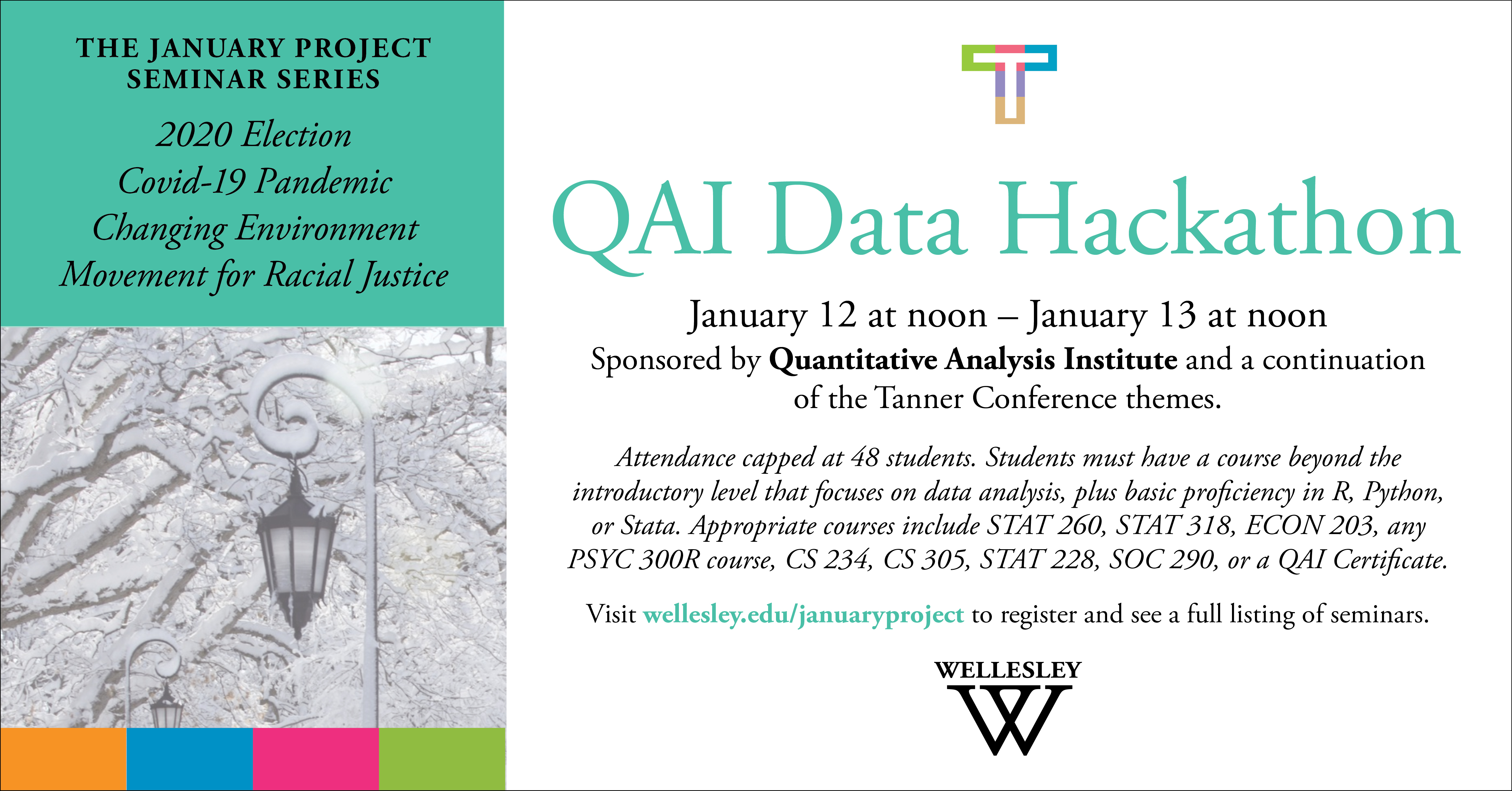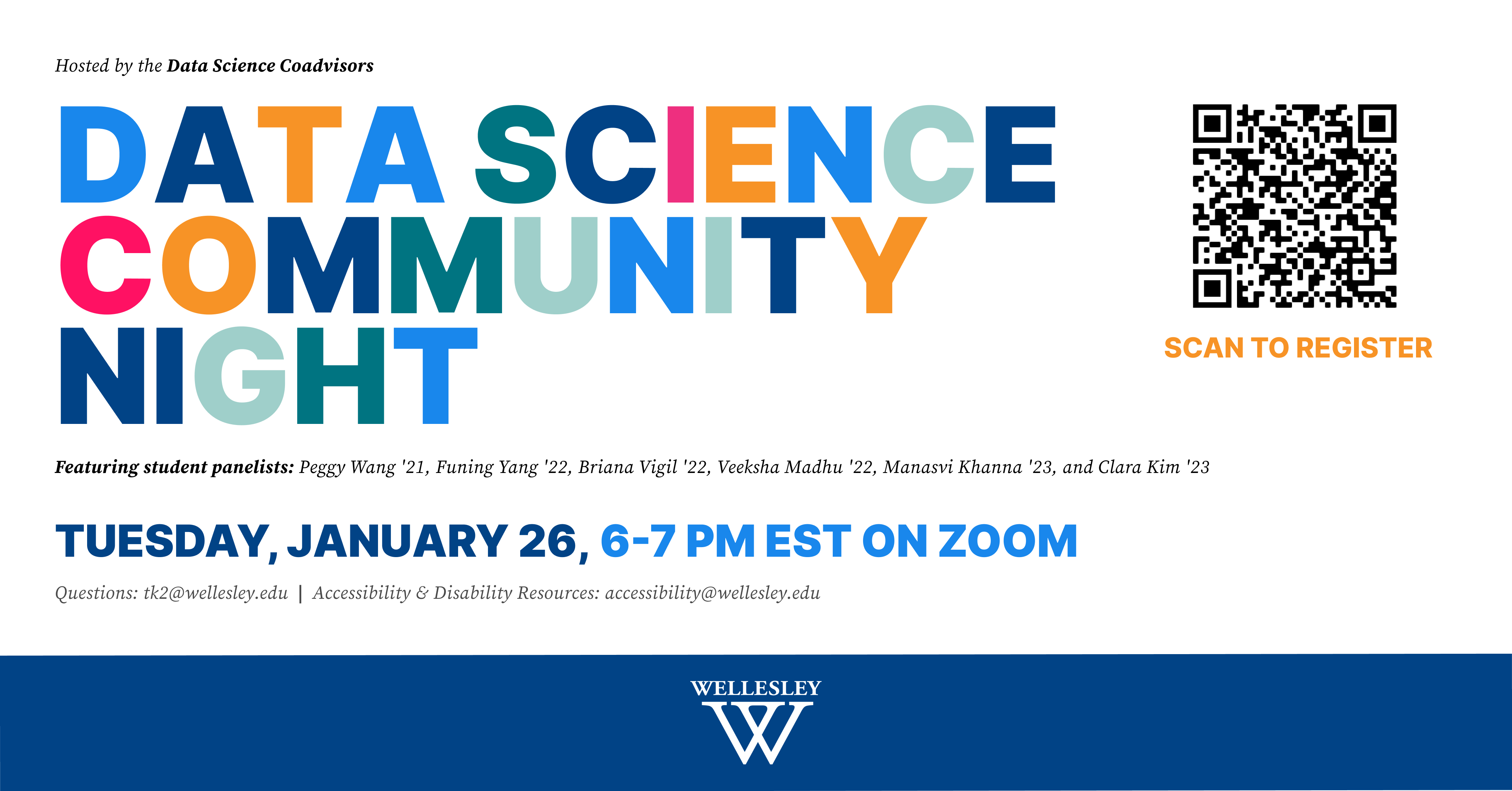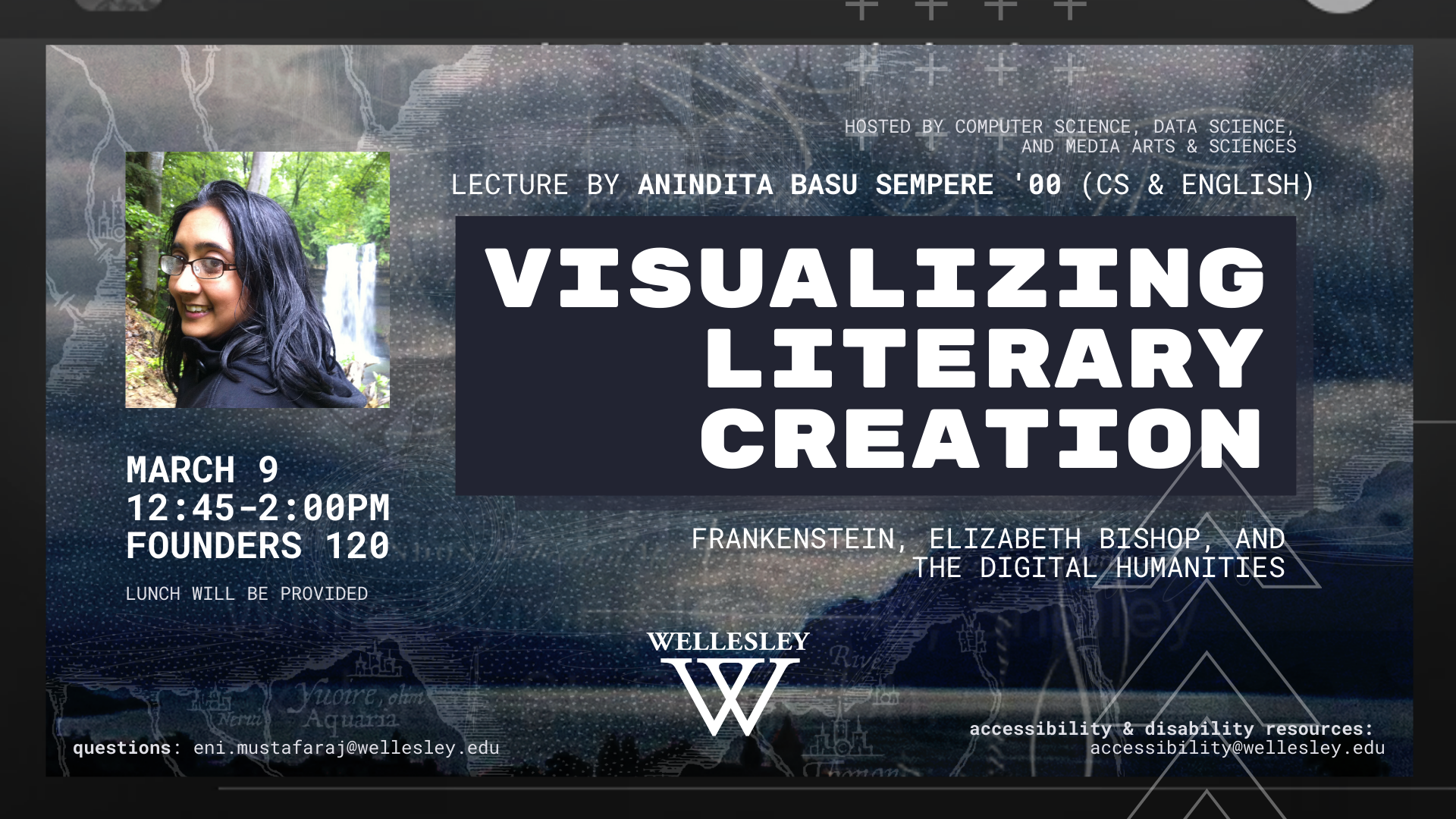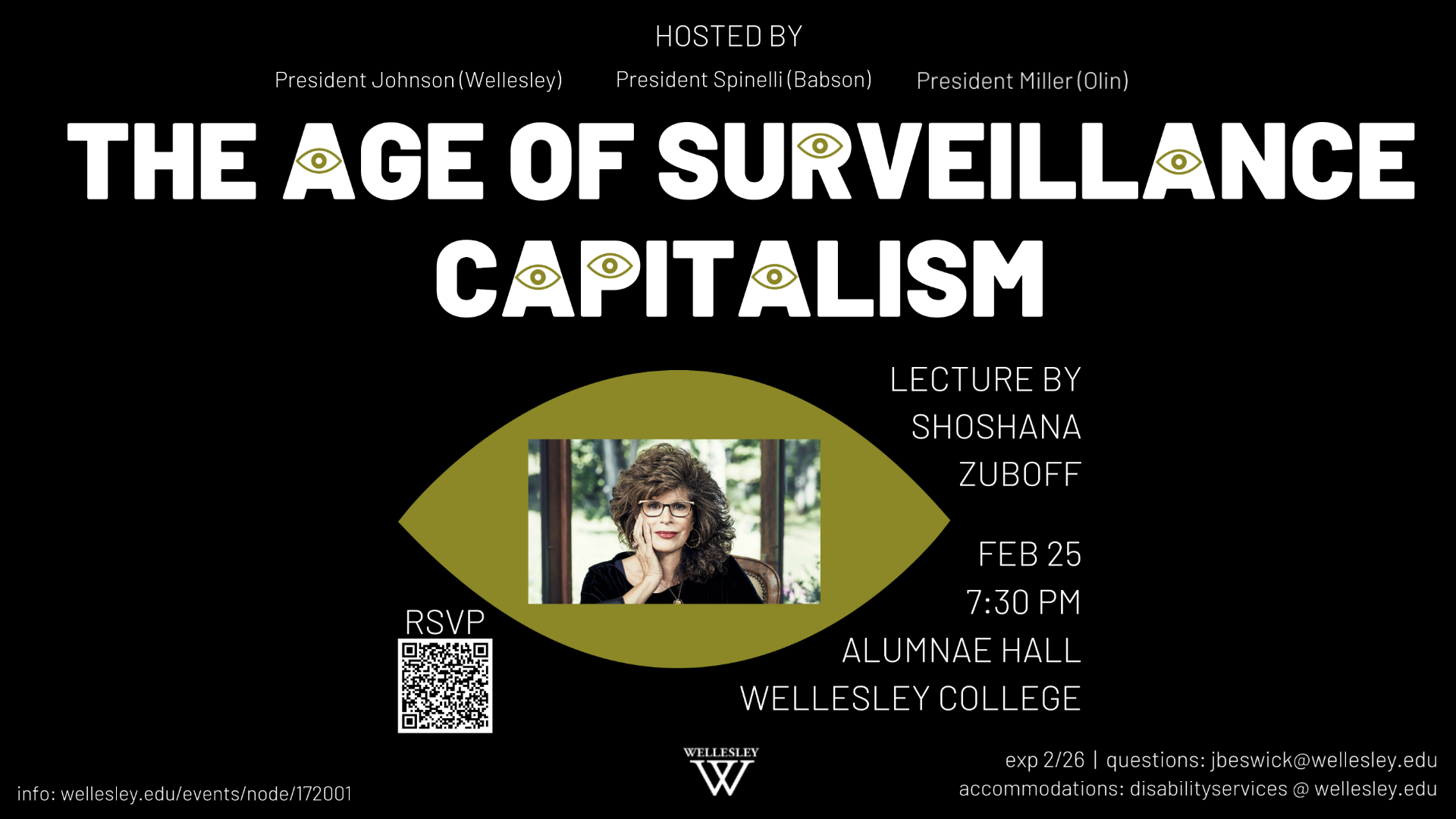Past Events
Events & News
Daily Shots
Read more below

Goldwater Scholarship Winner Wants to Revolutionize Psychiatry
May 19, 2020
Goldwater Scholarship recipient Heesu (Ally) Kim ’21 hopes her future research will create new psychiatric diagnostics and improve current psychiatric models. Ally is the cofounder of the Student Interdisciplinary Data Initiative (SIDI).

Wellesley Professor Explains Why It’s Time to Address the Limitations of Current Anti-Trafficking Efforts
August 6, 2020
Jennifer Musto, associate professor of women’s and gender studies at Wellesley, researches efforts designed to combat human trafficking, and she considers this a critical time to reflect on the success of those actions as well as reconsider both the structural vulnerabilities that enable exploitative labor arrangements and how to best support victims.

Meet the Student Founders of the Wellesley Data Collective Investigating the Campus Electorate
March 13, 2020
On March 12, Wellesley held its annual College Government elections. In the weeks leading up to the vote, Shreya Parjan ’21 and Bella Virgilio ’20, founders of the Wellesley Data Collective, were hard at work researching the campus electorate as part of their independent study under the guidance of Eni Mustafaraj, assistant professor of computer science.

What You Need to Know about Surveillance Capitalism
March 2, 2020
When it comes to surveillance capitalism in the digital world, here’s what people should be concerned about: “Who knows? Who decides who knows? And, who decides who decides who knows?” Harvard Business School professor emerita Shoshana Zuboff explores those questions in her 2019 book, The Age of Surveillance Capitalism: The Fight for a Human Future at the New Frontier of Power. Zuboff visited campus on February 25 to talk about surveillance capitalism as part of the Babson-Olin-Wellesley (BOW) faculty-led initiative made possible by a BOW Presidential Innovation Grant with focus on artificial intelligence and machine learning awarded to Eni Mustafaraj (Wellesley), Julie Walsh (Wellesley), Clare Gillan (Babson), Joe Ricciardi (Babson), and Erhardt Graeff (Olin)

Wellesley Professor’s Data Visualization App Helps Users Create Compelling Graphs
January 10, 2019
Every day, we are bombarded with information. How can we best separate facts or plausible arguments from misrepresentations and misunderstandings? For Jeremy Wilmer, associate professor of psychology and director of the Human Variation Lab at Wellesley, the answer lies partly in high-quality visual presentation of data.

Students Showcase a Summer of Science Research at Poster Session
August 12, 2019
Each year, Wellesley’s Summer Research Program allows a select group of students the opportunity to engage in high-level research in a variety of fields across the social and natural sciences.

Wellesley Student and Professor Research Wikipedia’s Role in Perceived Political Bias
July 25, 2019
In an era of the spread of misinformation, Khonzodakon Umarova ’20 and her advisor, Eni Mustafaraj, assistant professor of computer science at Wellesley, have found that people prefer to be aware of political bias in the news they consume and that while news outlets generally don’t advertise their biases, readers have taken it upon themselves to place these sources on a political spectrum. They include these opinions on Wikipedia as if they are facts, which then filter into search engine results.

Wellesley Students Take Top Prizes at BOW’s DataFest
May 8, 2018
On April 6, students from Babson, Olin, and Wellesley gathered to compete in DataFest, sponsored by the American Statistical Association, during which teams from all three schools compiled, analyzed, and presented information from a large, real data set.

A Wellesley Researcher Studies Individual Differences in Ability to Recognize Faces
September 5, 2017
If a former classmate walks by you on the street and looks you in the face without saying so much as “hello,” don’t be dismayed. Same for a person you met at a party the night before. These acquaintances are not necessarily being rude or aloof. Some people just struggle to recognize faces, according to Jeremy B. Wilmer, associate professor of psychology at Wellesley.

New Statistics Minor Coming to Wellesley This Fall
June 26, 2017
Wellesley students will have a new opportunity to study the art and science of drawing inferences from data when the College rolls out a minor in statistics this fall. Students who declare the minor will learn both the theoretical foundations of statistics as well as applied data analysis. They will be equipped to glean valuable information from today’s data avalanche in a range of fields—medicine, sociology, law, and economics, to name a few.

Marriage and Motherhood Cited as Major Causes of Gender Pay Gap in Two New Studies Co-Authored by Wellesley College Economist
May 22, 2017
The salaries of men and women are roughly similar when they complete college and enter the workforce in their early 20s, though men still make 10 percent more. However, a larger gender pay gap soon appears, and widens significantly over the next 10-20 years. Two new studies co-authored by Sari Pekkala Kerr, visiting lecturer in economics at Wellesley and senior research scientist at the Wellesley Centers for Women show that this gap occurs when women marry and are inclined to have children in their late 20s and 30s.

Bloomberg News Features Courtney Coile’s Research on Life Expectancy and Government Benefits
June 26, 2017
In the United States, the wealthy are increasingly living to older ages than the poor, and therefore end up receiving more money over their lifetimes from taxpayer-funded entitlement programs such as Social Security and Medicare than lower-income populations, according a study by Wellesley College Professor of Economics Courtney Coile and other researchers that was recently highlighted in a Bloomberg news article.

Wellesley Presents the Annual Ruhlman Conference and Launches a New Ruhlman Website
April 26, 2017
Wellesley celebrates student research today with the 21st Ruhlman Conference! The conference, named after Barbara Peterson Ruhlman ’54 and made possible by the Barbara Peterson Ruhlman Fund for Interdisciplinary Study, brings together the campus community to hear presentations on a variety of topics in the humanities, science and technology, and social sciences.

Wellesley Professor Tells the Washington Post: Users, not Internet Search Engines, Create Bias in Elections
April 5, 2017
For several years, search engines like Google have been blamed for influencing perceptions of political candidates and social causes held by voters. Researchers and some political experts have pointed their fingers at the search engines. This is important because election outcomes can turn on information voters use to inform their beliefs, said P. Takis Metaxas, professor of computer science at Wellesley. He spoke with The Washington Post in a recent article that talked about a monitoring system to investigate how spammers and internet users are able to manipulate search engines to promote their candidates and purposes.
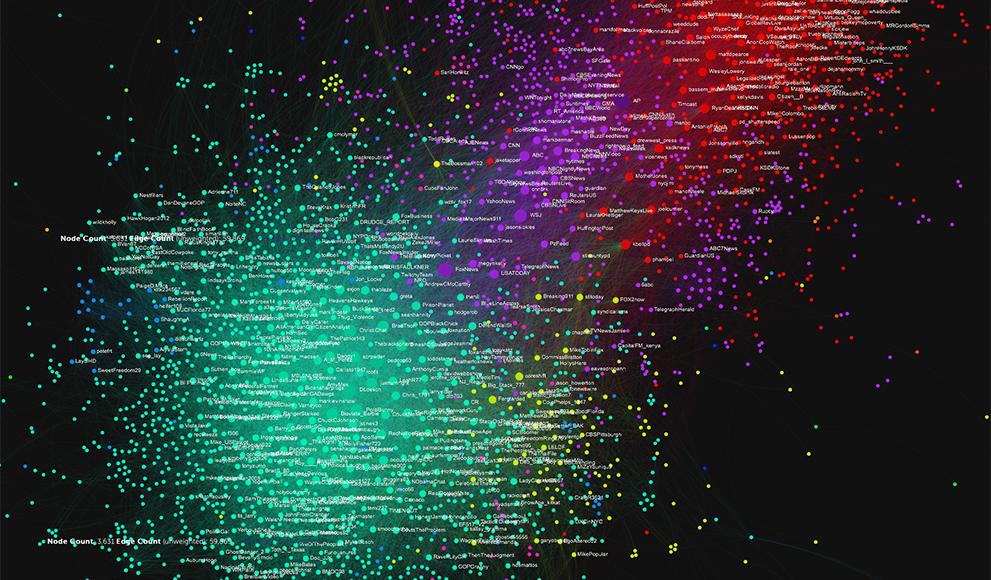
Wellesley Researchers Develop Tool that Tracks Truth and Lies on Twitter
June 15, 2015
Social media has become a major part of modern news reporting, but the drive to be first to report on a story can often eclipse accuracy and lead to the spread of false information. Enter TwitterTrails, an interactive web tool developed in Wellesley’s Social Informatics Lab that enables journalists to quickly examine a claim made on Twitter, track how far the claim has spread, and determine whether it appears to be true or false by analyzing the behavior of people who follow the story. TwitterTrails is directed by Wellesley professors Takis Metaxas, Professor of Computer Science and founder of the College’s Media Arts and Sciences Program, and Eni Mustafaraj, Assistant Professor of Computer Science, and managed by Samantha Finn ’12.

Wellesley’s Computer Science Department Celebrates 32 Years of Innovation
March 27, 2015
In 1982, most Americans might have agreed with Ken Olsen, co-founder and CEO of Digital Equipment Corp., who’d famously said five years earlier, “There is no reason for any individual to have a computer in his home.” Wellesley College did not share that view. Ann Congleton, professor emerita of philosophy, understood the tremendous potential of computer science and was instrumental in bringing computing to the College in the late 1960s.



